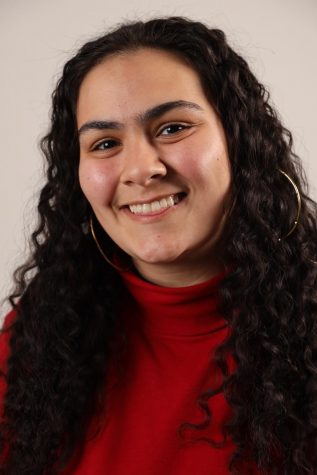
If you have depression, you are not alone.
Many students entering college think, “finally, now I don’t have to go to class all the time.” At least that’s what I thought. I soon found out that attendance is for the most part mandatory and was told by countless professors that missing class is a last option.
What I didn’t prepare for, apart from the mandatory attendance, was for my depression to get increasingly worse during college. When I was a third year I found myself crying everyday about school.
No one should have to choose between going to school and possibly having a breakdown in the bathroom stalls or staying at home and taking time for themselves.
Homework, even the simple action of typing my name on a Google Doc, felt like an unconquerable task. Going to class was like a performance for me just to see how long I could last without crying. I am depressed. And I am definitely not alone.
The National Institute of Mental Health found that adults aged between 18-25 are the highest individuals to more commonly experience a major depressive episode.
According to SF State’s Enrollment Headcount Report, 73% of students on campus during Fall 2018 were aged between 18-24.
October is National Depression Awareness Month. Methods for awareness include a national screening day where people can go to clinics and hospitals. While the screenings do not count as a professional diagnosis, it allows others to know if they have a presence of depressive symptoms.
There was a 3.5% increase in undergraduates who felt “so depressed that it was difficult to function” between Fall 2018 and Spring 2019 according to the National College Health Assessment.
The Disability Programs and Resource Center (DPRC) at SF State is a unit within Student Affairs and Enrollment Management. Their main task is to work with students and employees with disabilities to make sure that all aspects of campus are accessible to them.
“Many requests for accommodations do require a medical provider to fill out the form to allow DPRC to have an understanding of how the student’s disability affects their ability to have access to a university program or service,” Wendy Tobias, Director of DPRC said. “We generally first speak to the student as students are experts on their own life experience and can share what has been useful in the past or for someone with a new disability, explore more about their experience thus far.”
The DPRC website has a section titled “Documentation Guidelines” that outlines what a medical provider might have to write in a student’s form.
Tobias suggests that “all students see DPRC as soon as they are considering services even if they do not have documentation with them so we can help focus on exactly what is needed to save everyone time.”
I haven’t sought help for my depression. In fact, this is my first time publicly stating I have depression.
Since my depression isn’t medically confirmed, I was skeptical of any programs SF State had to offer. Without writing this article I honestly wouldn’t have known that DPRC would have listened to me without documentation of my depression.
I am a fourth year student graduating next semester (hopefully) and I took the services here on campus for granted. I urge anyone who feels any sort of hopelessness, inability to do things that once interested them or extreme anxiousness to seek help.
If you cannot find yourself to seek professional help yet, that is okay. Talk to a friend or call the National Suicide Prevention Lifeline: 1-800-273-8255 (TALK).
You are not alone.







